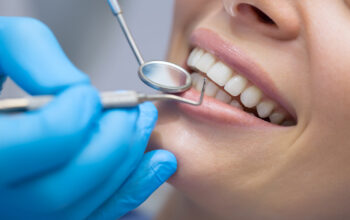Superbugs: The Most Dangerous Hospital Infections
For the past two years, there’s one disease that has dominated the collective mind of the entire world. We’re talking, of course, about COVID-19. The stress of being in hospital has been compounded by the fear that patients will also contract this sometimes deadly virus.
But despite the attention that it’s received in recent years, COVID-19 is far from the only virus that we should be worrying about. In fact, there are many other hospital infections that can be even more debilitating and dangerous than COVID-19.
What are they, and how can we protect ourselves from them? Read on for everything you need to know about hospital-acquired infections and how to prevent them.
What are Hospital-Acquired Infections?
HAIs (also known as superbugs or nosocomial infections) are specific types of infections that are contracted by way of bacteria or infectious organisms that are commonly found in hospitals. It’s estimated that one in every 31 Americans contracts an HAI each day.
HAIs are characterized by being difficult to treat and can be deadly. At least 90,000 Americans infected in hospitals each year die from HAIs.
In order for a person to be diagnosed as having a HAI, they must have only contracted the infection after being admitted to a healthcare facility. An HAI can occur
- up to 48 hours after hospital admission
- up to 3 days after discharge
- up to 30 days after an operation
Common Symptoms of Hospital Infections
There are several different types of common hospital infections, each with its own characteristics and symptoms. Two of the most well-known are MRSA and flesh-eating bacterial disease.
Symptoms vary but can include discharge from a wound, vomiting or diarrhea, fever, or headaches. In the majority of cases, doctors can diagnose an HAI by sight and symptoms alone. However, it’s possible a patient will need to have their blood or urine tested in order to get to the bottom of the problem.
Treatment Options for HAIs
As there are several different types of HAIs, treatment options will vary depending on what type of virus is present. The name superbug comes from the fact that HAIs can be difficult to treat in many cases. Antibiotics are often prescribed, along with plenty of rest and fluids.
Preventing Hospital-acquired Infections
When a hospital infection breaks out, it can be difficult to contain. However, there are some things you can do to minimize the risk of an infection spreading in the first place.
Cleaning and hygiene are paramount. Wearing protective gear and practicing good hand washing measures are both crucial. Another big factor is keeping the areas clean.
Sanitizing surfaces, cleaning all areas on a regular basis, and making sure trash is always taken out on time all contribute to a cleaner and safer healthcare facility. To learn more about cleaning protocols in healthcare settings, click here.
Keep Your Patients Safe and Your Facility Clean
If you’d like to help stop the spread of hospital infections, proper hygiene and cleaning are absolutely essential. Make sure patients, healthcare providers, and cleaning staff are well-briefed on the dangers of HAIs so they’re able to act in the most responsible way. If you’re looking for more healthcare tips, check out the rest of our site now.




